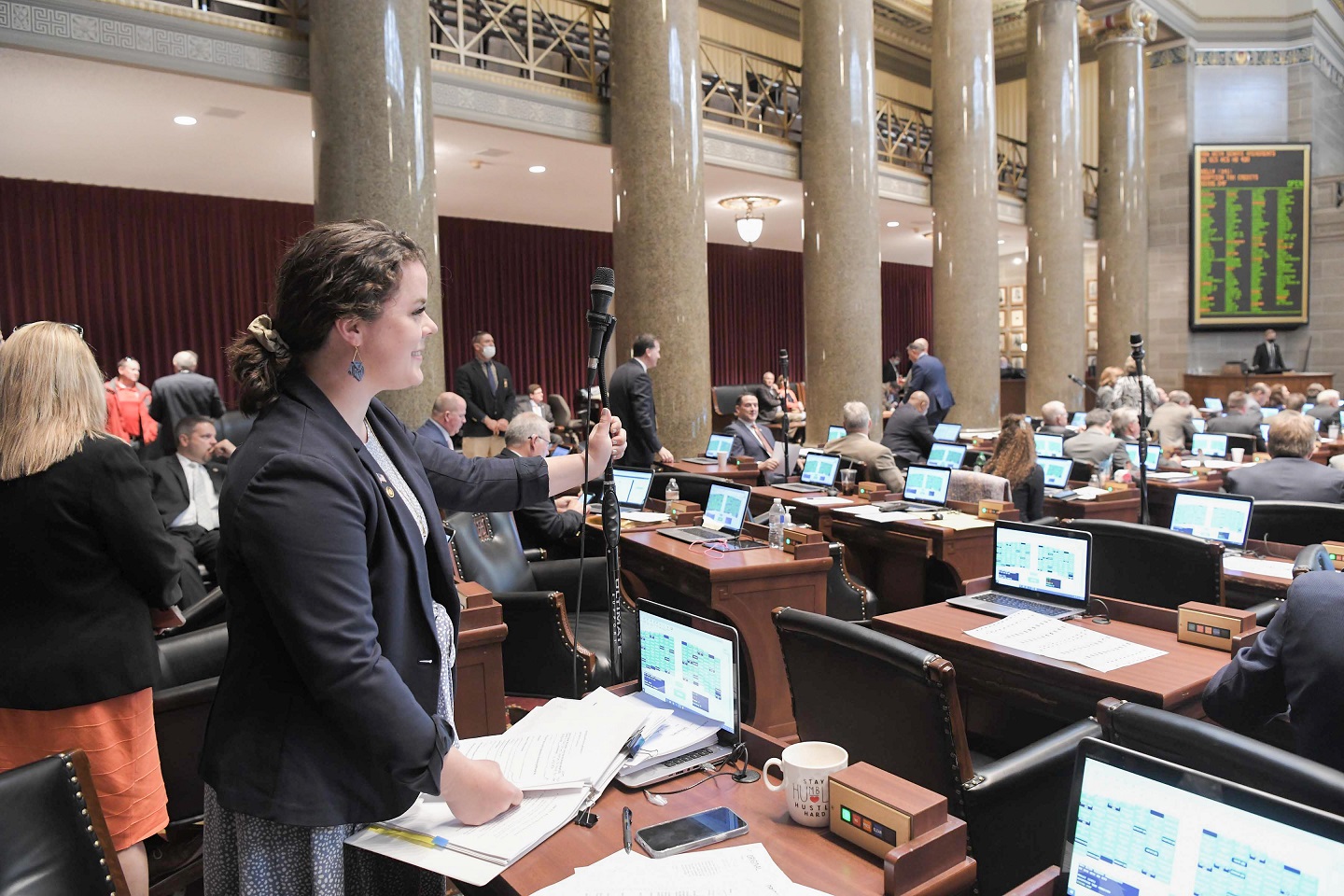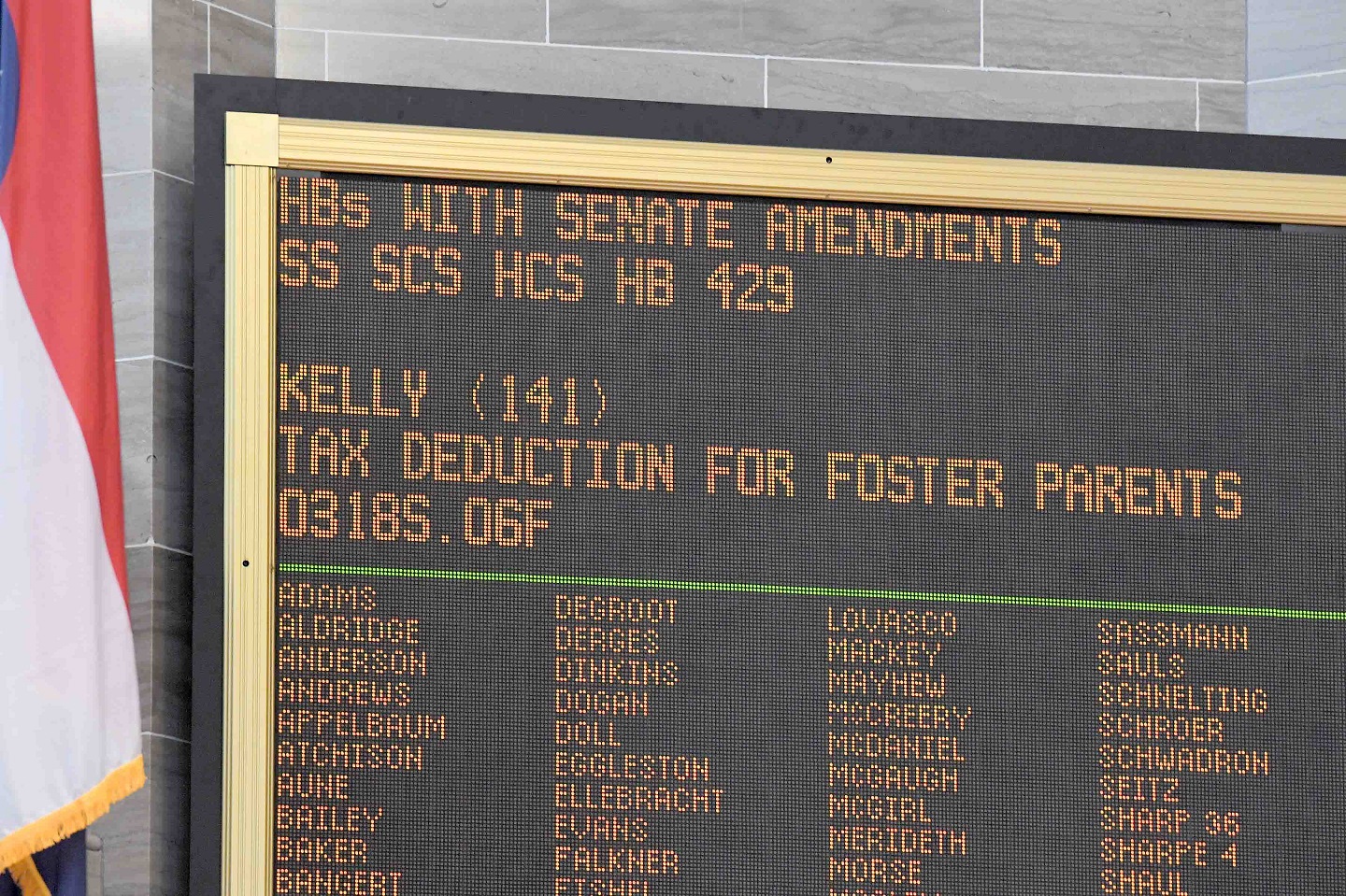The legislature has proposed several measures meant to give more Missouri children a chance to get out of the foster care system and into permanent homes, and to help foster and adoptive parents afford the costs of caring for and adopting children.

House Bills 429 and 430 were agreed to this week and now await action by Governor Mike Parson (R), who lawmakers say has indicated support for them. Mountain Grove Republican Hannah Kelly sponsored both.
HB 430 would expand current tax credits for the adoption of Missouri children with disabilities to be available in any adoption, while giving priority to instances involving Missouri children with disabilities. Kelly said of a program capped at $6-million a year, less than $30,000 was claimed last year.
She said by allowing a broader offering of this credit, more Missouri children will have the opportunities for permanent families.
“When people say it should stay to be Missouri children. Well if a Missouri family wants to adopt a child then that’s a Missouri child in my mind,” said Kelly. “If you’re a Missouri taxpayer we’re going to support you in your effort to open your home and your heart to children in need.”
HB 429 authorizes an income tax deduction for expenses related to providing care as a foster parent.
It also creates a “Birth Match” program. It would require the state Children’s Division and the State Registrar’s Office to compare birth reports with information on parents who have been convicted of certain crimes. When parents have history of the specified crimes, Division personnel will make contact with the family to see if any action is appropriate.
This could include seeing whether any crimes are being committed, but Kelly said in a broader sense it is about seeing whether the family is in need of any of the types of assistance the state could facilitate.
“Birth Match is intended to match the families with the services to prevent a repeat of previous situations,” said Kelly. “If you can step in and offer services, whether that be parenting classes, whether that be … do you need to be signed up for Medicaid … do you need prenatal care … do you need, OK you need a washer and a dryer.”
HB 429 also increases the age threshold for abandoned infants and children from one year or under to under three years old. It sets a time frame of six months before a petition of termination of parental rights is considered in cases of neglect by a parent.

Kelly said by restructuring this and other parts of law, impediments to giving a child a permanent home are removed.
“The research was showing us that [children] were getting ‘caught in limbo,’ is the best way to put it,” said Kelly. “This is expected very much to help make sure that kids don’t get stuck in what can feel like forever being hung between, ‘Okay, I know that I’m abandoned by my bio-family but I also need a termination of parental rights process to happen before my family who wants to adopt me can officially be my adoptive family.”
Kelly credits House Speaker Rob Vescovo (R-Arnold) with making the legislation a priority, which pushed these bills to be the first non-budget measures sent to the governor this year. She said not only did he make these issues priorities, he bravely, publicly shared his own personal story of having been in Missouri’s foster care system as further evidence of the need for reform.
The legislation received overwhelming bipartisan support. The final House vote on HB 429 was 127-8; the vote on HB 430 was 142-0.